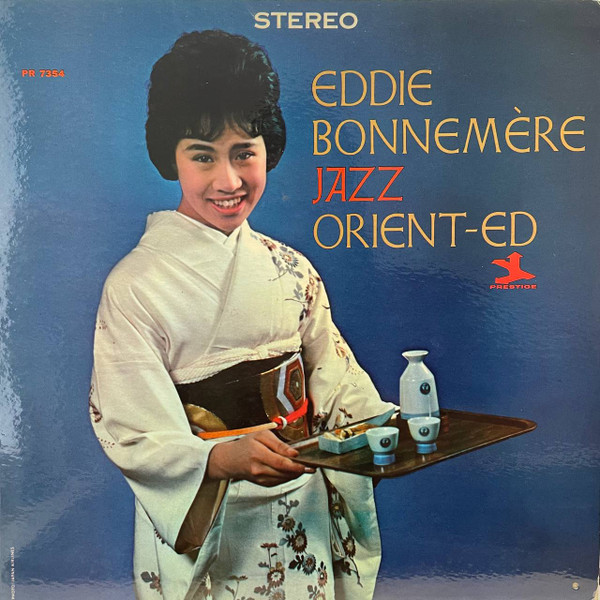LISTEN TO ONE: Ankle Bells
Eddie Bonnemère didn't quite make a major reputation as a jazz musician, but he made musical history of a different sort.
A church pianist in his teenage years in Harlem, a World War II vet, a serious enough student to get a master's degree from NYU. he stayed in New York and stayed with music, drawn toward the Latin rhythms of the 1950s -- in 1953, he and Ray Barretto led a band at the dance-crazed Savoy Ballroom, and by the mid-50s, he was leading a mambo band in the jazz hotbed of Detroit, where he recorded an album that was released on the Royal Roost label.
Returning to New York, now 43 years old, he got a second shot at recording with a jazz label, still very much Latin jazz-oriented. But another passion was growing within him.
Perhaps his interaction with the Latino community had led him to the Catholic Church, but he was drawn to a new movement gaining traction in New York in the 1960s, the Black Catholic Movement, spearheaded by Father Clarence Rivers, a priest who was also a composer of liturgical music that drew on black gospel music as a point of reference. Bonnemère composed a mass, the "Missa Hodeirna" for jazz ensemble and choir, which became, when it was performed at the St. Charles Borromeo Church in Harlem, one of the first jazz masses to be performed in a Catholic Church.
Bonnemère stayed with the church, composing more liturgical music, becoming the musical director of New York's Church of St. Thomas the Apostle.
He made two recording sessions for Prestige in September of 1964, with his own group, plus Kenny Burrell, which became the album Jazz Orient-ed. If the title sounds a little gimmicky, that's because it is. We've heard the genuine passion for Middle Eastern music which informs Yusef Lateef's recordings, and this isn't exactly that. The anonymous writer of the album's liner notes doesn't quite know what to make of it, though he does his best: "This fusion is not so strange when we consider that some Oriental Nations were once under Spanish control, and as a result, much of their folk music is based on Spanish Rhythms."
He also singles out Bonnemère's compositions "Roostology," "Oriental Mambo" and "The Spinx" as "very much a part of standard jazz reepertory." I don't believe any of them have stood the test of time, and in the case of "Oriental Mambo," which is on this session, I have to say that's probably just as well. It's an awkward pastiche of Eastern music clichés and mambo rhythms, but once they get beyond the main theme, the playing isn't bad at all. and the rest of the album is quite good. Whatever Bonnemère's connection to the music of the far east may have been, his commitment to Latin jazz is genuine, and his percussion-dominated group is a good one.
"Ankle Bells" was the 45 RPM single from the session, with "Man in a Raincoat" on the flip side. "Ankle Bells" is another sort of Far East/Latino mashup, but this one works, and all in all, Eddie Bonnemère makes for a good listen.
Cal Lampley produced.
Another passing oddity. Both Bonnemère and Morris Nanton recorded "The Theme from 'A Boy Ten Feet Tall,'" another song that didn't quite become a part of standard jazz repertory, within a week of each of each other. Written by Les Baxter for a now-forgotten movie, it is not included in the quite extensive list of Baxter compositions on the secondhandsongs website. I listened to both versions, and enjoyed both. I don't think there are any others.


No comments:
Post a Comment